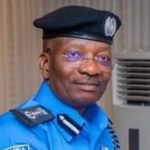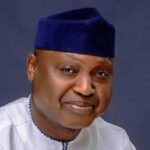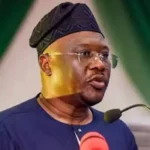
The Federal Government said despite remarkable reforms recorded in the 2015 general elections, the country’s electoral process remains contentious and weak.
This was disclosed by the Attorney-General of the Federation and Minister of Justice, Abubakar Malami (SAN) at the Nigeria Civil Society Situation Room Stakeholders Forum on Elections in Abuja.
Malami said several experts had observed that the 2015 elections demonstrated that there was still contestation of the legitimacy of both electoral procedures and outcomes and that was why President Muhammadu Buhari approved the setting up of the Constitution and Electoral Reform Committee.
Represented by Juliet Ibekaku-Nwagwu, the Special Assistant to the President on Justice Reform, Malami said an implementation committee headed by the Vice-President was set up to develop a white on the report of the reform committee and forward the bills to the National Assembly for passage into law.
He said this was because of the administration’s belief that a credible electoral process was essential for the survival of democracy in the country.
Chairman, House of Representatives Committee on Electoral Reform, Aishatu Jibril Dukku confirmed that 12 bills seeking to amend provisions of the Electoral Act 2010 and the Electoral (amendment) Act 2015 were referred to the House Committee on Electoral and Political Parties Matters.
Notable among these bills, she said, is a Bill for an Act to include Nigerians in Diaspora who are qualified to vote on the National Register of Voters for Presidential elections.
“Under the provisions of the bill, the Commission in collaboration with the Nigerian Embassy/Liaison office would decide the number of registration and voting centres, where Nigerians in Diaspora can vote,” she said.
On its part, INEC said it hope to be ready by 2019 for electronic transmission of results, after commencing the process with the recently conducted gubernatorial election in Anambra State.
INEC Chairman, Professor Mahmood Yakubu, who was represented by Dr Kunle Ogunmola said INEC would continue to register political parties until the time allowed by the Act.
The dialogue session was organised by the Policy and Legal Advocacy Centre (PLAC) with support from the United Kingdom’s Department for International Development (DFID).



